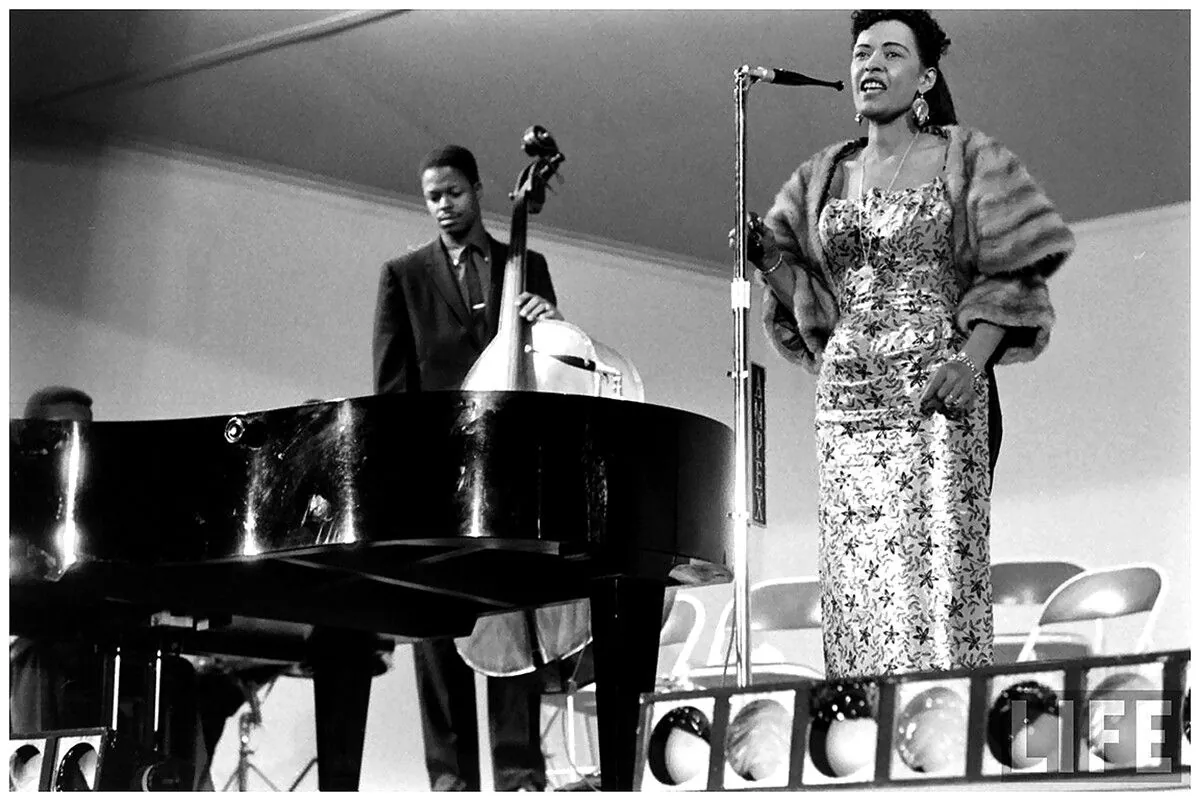In a dimly lit club setting, a jazz trio sets the stage for an intimate portrayal of Billie Holiday's life and music. The Mosaic Theater Company's production of "Lady Day at Emerson's Bar and Grill" transports audiences to 1959 Philadelphia, mere months before the legendary singer's untimely demise.
Roz White embodies Holiday with a captivating blend of charm and vulnerability. The play, written by Lanie Robertson, first graced stages in 1986 and has since become a poignant tribute to the jazz icon's tumultuous journey.
As Holiday, White navigates through a setlist of over a dozen songs, interspersing them with candid anecdotes from the singer's life. The narrative touches on Holiday's formative years, her musical influences, and her struggles with addiction.
White's performance shines brightest when channeling Holiday's raw emotions. Her rendition of "Easy Living" resonates with the weight of the singer's hardships, while "Ain't Nobody's Business" captures the essence of Holiday's defiant spirit.
The production, directed by Reginald L. Douglas, creates an immersive nightclub atmosphere. Jesse Belsky's lighting design enhances the mood, alternating between soft, moonlit glows and harsh spotlights that mirror Holiday's emotional state.
"Music is light to me."
This sentiment encapsulates Holiday's enduring love for her craft, despite the hardships she faced. Born Eleanora Fagan, Holiday rose to fame in the 1930s, performing with jazz legends like Count Basie and Artie Shaw. Her distinctive vocal style, developed without formal training, earned her the nickname "Lady Day" from saxophonist Lester Young.
Holiday's life was marked by both triumphs and tribulations. Her 1956 autobiography, "Lady Sings the Blues," chronicled her struggles with addiction and legal troubles. Despite these challenges, she continued to captivate audiences until her final major concert at Carnegie Hall in 1956.
The play doesn't shy away from Holiday's darker moments, including her arrest and imprisonment for drug possession. However, it also celebrates her resilience and the indelible mark she left on music history.
As the performance draws to a close, audiences are left with a profound appreciation for Holiday's artistry and the enduring power of her music. "Lady Day at Emerson's Bar and Grill" serves as a fitting tribute to a jazz legend whose influence continues to resonate decades after her passing.
